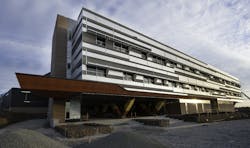DOE Announces $4 Million for Geothermal Deep Direct-Use Feasibility Studies
The U.S. Department of Energy announced up to $4 million in funding for six geothermal Deep Direct-Use research projects to conduct feasibility studies of large scale, low-temperature deep-well geothermal systems and cascaded surface technologies. These projects will extend the reach of geothermal energy into previously untapped regions of the country: the Appalachian Basin, the Illinois Basin, the Wassuk Range, the Columbia River Basalt Group, the Walker Lake Valley, and the Gulf Coast region of Texas.
DDU is an emerging technology that has been underutilized in the United States. If feasible, it could deliver direct geothermal energy from lower-temperature resources across the country and significantly expand the reach of that energy into geologically distinct parts of the country.
Direct geothermal energy has the potential to diversify the nation's energy supply and help meet environmental goals. It is expected to use low-temperature, thermal resources in subsurface reservoirs in U.S. regions lacking conventional hydrothermal resources. DDU wells used to directly power buildings would be deeper than ground-source heat pump boreholes and shallower than wells used for enhanced geothermal systems used for electricity generation.
At a large scale, DDU applications can potentially be used to replace conventional district heating and cooling systems in military installations, hospital complexes, office buildings, hotels, and other large energy end-uses. For the purpose of this announcement, large-scale is defined as a space-conditioning area greater than 10,000 sq. ft. or having an annual thermal energy demand equal to or greater than 125 million British thermal units.
The research will evaluate the feasibility of harvesting heat from geothermal brines and using it directly to heat (or cool) buildings, as well as for other beneficial thermal processes. Pairing low-to-medium temperature geothermal fluids with low-to-medium temperature end-uses instead of using higher temperature power generation or fuels with high Btu content to heat and cool various applications with lower energy requirements can result in significant energy conservation gains.
A U.S. Geological Survey assessment estimates that 46,000 Megawatt thermal (MWth) of total beneficial heat is available from U.S. geothermal resources below 90° C (~195° F). DDU promotes large scale, commercially viable systems that optimize the value stream of lower temperature resources through a cascade of uses.
The research teams selected represent a range of partners who will share the cost of performing the feasibility analysis with DOE. The organizations receiving awards include:
• Cornell University, Ithaca, N.Y.
• National Renewable Energy Laboratory, Golden, Colo.
• Portland State University, Portland, Ore.
• Sandia National Laboratories, Albuquerque, N.M.
• University of Illinois, Champagne, Ill.
• West Virginia University Energy Institute, Morgantown, W.Va.
The Office of Energy Efficiency and Renewable Energy accelerates the research and development of energy efficiency and renewable energy technologies and market-based solutions that strengthen U.S. energy security, environmental quality, and economic vitality.
Visit geothermal.energy.gov to learn more about EERE's Geothermal Technologies Office, including funding opportunities and efforts to develop innovative technologies capable of locating, accessing, and developing geothermal resources.
